Fears that the Russia-Ukraine conflict may soon spiral into a global, nuclear confrontation have driven Americans’ interest in underground bunkers as a means of surviving future catastrophes.
While perhaps seen by many as a remnant of the Cold War, a market has emerged for modernized fallout shelters equipped with the amenities of a typical American home. Those in the bunker trade spoke to Newsweek about the industry’s latest trends, and the motivations driving their clients—including executives from listed U.S. companies—to plan for apocalyptic scenarios.
One such example is Survival Condo, a 15-storey, 20,000-square-foot bunker in northern Kansas capable of housing and sustaining 75 individuals for over five years. Refashioned from a decommissioned government missile silo, which the company says was designed to “survive a direct nuclear strike,” Survival Condo assures its clients that they will enjoy unrivaled protection from any future disaster on American shores.
Larry Hall is the owner of Survival Condo, having purchased the silo in 2008 for $300,000, and told Newsweek that interest in his business often piques in response to significant global events. “We see periodic increases in the interest level for our bunkers that mirror world concerns,” Hall said. “COVID was a good example and during the past nine months the election and specific global hot spots support that observation.”
Hall said that traffic on his site had risen over the past few months—”nuclear” emerging as one of the most searched terms—and chalked this up to the Ukrainian conflict. The primary concern expressed by prospective clients, he said, was “the fear of Putin escalating the war with Ukraine by using tactical nuclear weapons.”
1 of 4
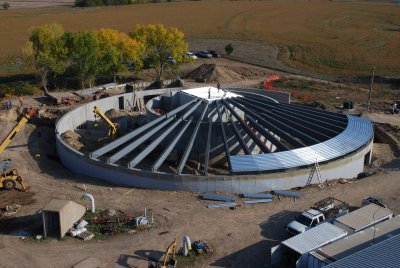
Survival Condo Projects

Survival Condo Projects
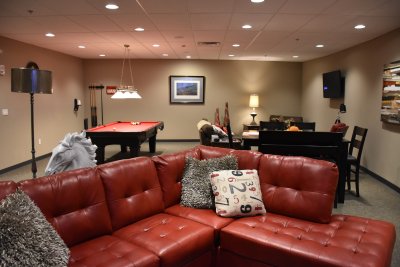
Survival Condo Projects
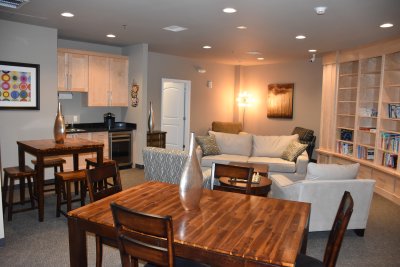
Survival Condo Projects
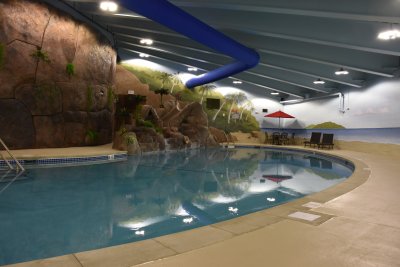
Survival Condo Projects
Cory Hubbard is the co-owner of DEFCON Underground Mfg., a company specializing in underground bunkers and bomb shelters for clients across America.
Like Hall, Hubbard said that interest in the company had spiked as a result of the Russia-Ukraine war. “When the Ukraine war first started I’d say call volume went up several [hundred] percent,” Hubbard told Newsweek, adding that there was also a noticeable uptick “whenever Putin mentioned nuclear anything.”
However, he said that interest in the company’s shelters tended to increase alongside any kind of “big world event,” and that customers may be seeking a shelter for numerous reasons besides war with Russia.
As the online forums of self-described preppers make clear, bunkers and other disaster-related provisions are not reserved solely for end-of-the-world scenarios, and may be made in anticipation of extreme weather events, domestic political upheaval, or another world-halting pandemic, events collectively referred to by the community with the acronym SHTF—scenarios in which “s*** hits the fan.”
1 of 5
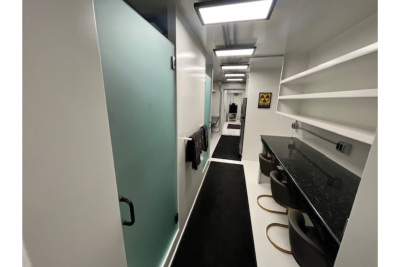
DEFCON Underground Mfg. LLC
Aside from protection against Russian nukes, Hall said that Survival Condo’s prospective customers were also motivated to seek his services by the possibility of a conflict between Israel and Iran, tensions between China and Taiwan, fears over domestic terrorism by “undocumented migrants,” as well as the possibility of another pandemic sweeping the country.
Hall is preparing to open another facility in Tescott, Kansas, which promises to offer protection against everything from solar flares and meteor storms to civil unrest and deadly pandemics. His company also offers custom bunker designs for those hoping for a nuke-proof shelter of their own, rather than the flagship condominium facility.
With price tags in the millions, Hall admits that his company’s luxury offerings are “not for everyone,” but told Newsweek that Survival Condo had been approached by several notable, affluent individuals and groups seeking security against whatever the future may hold.
“One interesting development is that we have had an increase in inquiries from some tightly held companies that have expressed the desire for a complete facility for their company,” Hall said. “The requests are for a hybrid design, nuclear-hardened bunker that would have several floors for a backup data center and luxury living quarters for the company owners.”
While he could not disclose the specific companies in question, Hall said that several such requests came from “crypto and crypto mining” firms, some of which are publicly traded.
“Most people just call looking for a bunker and need to have things explained to them,” Hubbard said of his clientele. “There is a lot that goes into how and why the shelters are made and designed. Most people have no idea what it actually takes.”
Besides food and supplies to outlast whatever disaster has swept the country, he said that many underestimate what is needed for a truly nuke-proof bunker.
“Fallout shelters or actual bomb shelters typically require four to six feet of dirt on top of them to handle the radiation from a nuclear blast,” he said, adding that entrances to these shelters must also be designed “with certain angles” to protect against radiation.

Survival Condo Projects
Hall said an underappreciated aspect of his company’s fallout shelter was the communal aspect and the daunting, alternative prospect of outlasting a calamity with only a handful of individuals by your side.
As well as the mandatory provisions—redundant sources of electricity and water and medical supplies—Survival Condo offers an indoor spa, pool and workout facility, as well as a theatre and classroom for adults and children to mingle in the post-disaster period. Hall said that clients found these luxuries particularly beneficial during the pandemic, as many sought refuge in the bunker.
“COVID was a test case that our existing owners told me that they underestimated the benefit of being able to have conversations with other adults about the global situation and to bounce ideas with,” Hall said. “Most of our clients have children, and the ability of the kids to all play together during COVID in our protected environment was a huge plus for the parents.”
Do you have a story we should be covering? Do you have any questions about this article? Contact LiveNews@newsweek.com.


























